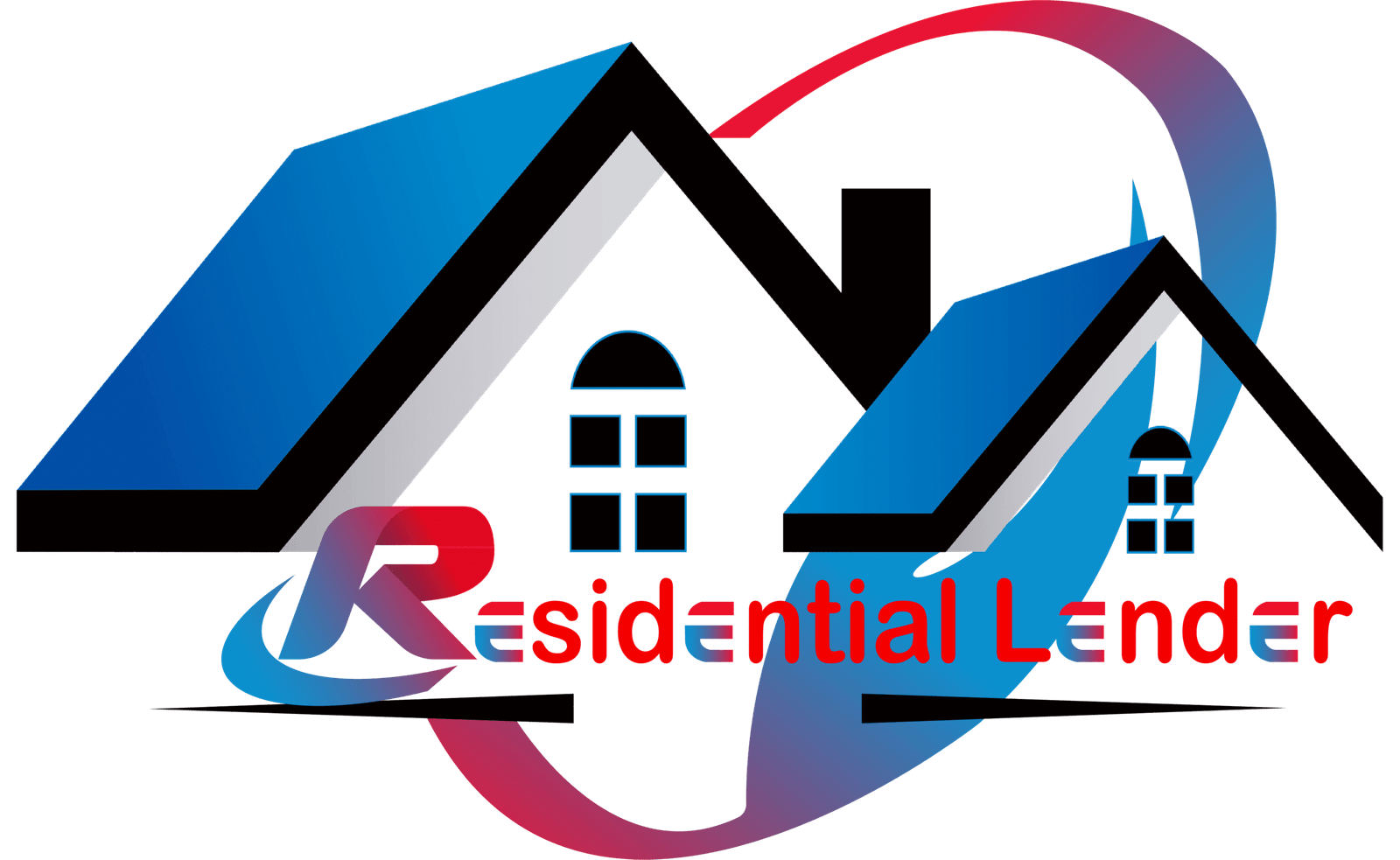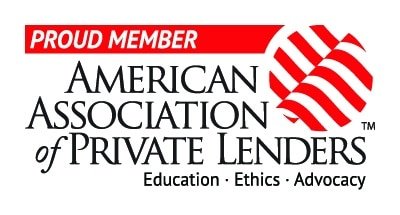Securing the right mortgage lender is crucial for a successful real estate transaction. A qualified lender can offer competitive rates, personalized guidance, and a smooth loan approval process. This blog provides a comprehensive guide to finding the best mortgage lenders, empowering you to make informed decisions throughout your home-buying journey.
ResidentialLender.Net is a trusted resource for homebuyers and homeowners, and it has years of experience in real estate financing. We understand that navigating the mortgage process can be complex and overwhelming, so we’re dedicated to helping you find the right lender for your unique needs and financial goals.
What to Look for in a Mortgage Lender
Qualifications and Experience
When choosing a mortgage lender, it’s essential to consider their qualifications and experience. Here are key factors to look for:
Lender Licensing and Certifications
State Licensing: Ensure the lender is licensed to operate in your state. This indicates they have met specific requirements and are authorized to conduct mortgage lending activities.
Industry Certifications: Look for certifications like Certified Mortgage Planner (CMP) or Certified Mortgage Banker (CMB). These demonstrate a commitment to professional development and expertise in the mortgage industry.
Years of Experience in the Mortgage Industry
Lender Experience: Consider the lender’s individual experience in the mortgage industry. A seasoned lender with years of experience is likely to have encountered a wider range of scenarios and can provide valuable guidance.
Company Experience: Evaluate the lender’s company’s overall experience in the mortgage market. A well-established company with a strong track record is often a more reliable choice.
Track Record of Successful Loan Closings
On-Time Closings: Ask about the lender’s on-time closing rate. A high success rate indicates the lender’s ability to process loans efficiently and meet deadlines.
Client Testimonials: Look for positive client testimonials or reviews. These can provide insights into the lender’s customer service, communication, and overall satisfaction.
By carefully evaluating a lender’s qualifications and experience, you can increase your chances of finding a reliable partner for your mortgage journey.
Loan Products Offered
Mortgage lenders offer a variety of loan products to suit different borrower needs and financial situations. Here are some common types:
Conventional Loans
Conforming Loans: These are backed by Fannie Mae and Freddie Mac and adhere to specific loan limits set by the agencies.
Jumbo Loans: Designed for high-value properties, these exceed conforming loan limits.
Government-Backed Loans
FHA Loans: Backed by the Federal Housing Administration, they offer lower down payment requirements and more flexible credit guidelines.
VA Loans: Guaranteed by the Department of Veterans Affairs, they offer competitive rates and benefits for eligible veterans, active-duty service members, and surviving spouses.
USDA Loans: Backed by the U.S. Department of Agriculture, they provide financing options for rural property purchases.
Other Loan Types
Bridge Loans: Short-term loans bridge the gap between selling one property and purchasing another.
Hard Money Loans: Short-term, high-interest loans typically used for investment properties or renovation projects.
Construction Loans: Used to finance the building of a new home.
Renovation Loans: Designed to finance home improvement projects.
It’s important to discuss your specific financial situation and goals with a lender to determine which loan product is the best fit for you.
Interest Rates and Fees
Understanding interest rates and fees is crucial when choosing a mortgage lender. These factors significantly impact the overall cost of your loan.
Importance of Comparing Rates and Fees from Multiple Lenders
Mortgage rates and fees can vary significantly between lenders. By comparing offers from multiple lenders, you can identify the most competitive options and potentially save thousands of dollars over the life of your loan.
Understanding the Different Types of Fees Associated with a Mortgage Loan
In addition to the interest rate, there are various fees associated with a mortgage loan, including:
Origination Fees: The lender charges upfront fees for processing your loan application.
Application Fees: Fees charged by the lender for processing your loan application.
Discount Points: Prepaid interest that can be used to decrease the interest rate.
Lender Fees: Fees charged by the lender for services such as underwriting and processing.
Closing Costs include fees associated with closing the loan, such as appraisal, title insurance, and attorney fees.
It’s essential to carefully review each lender’s loan estimate to understand the full cost, including all applicable fees.
Tips for Negotiating Interest Rates and Fees
While market factors primarily determine interest rates, you may have some room to negotiate fees. Here are some tips:
Shop and compare offers: Get quotes from multiple lenders to identify the most competitive rates and fees.
Negotiate with the lender: Don’t hesitate to negotiate to see if they will reduce fees or offer more favorable terms.
Improve your credit score: A higher credit score can qualify you for lower interest rates.
Consider bundling services: Some lenders offer discounts for bundling services such as mortgage, insurance, and banking.
Ask about lender credits: Some lenders may provide credits to offset closing costs.
By carefully considering interest rates and fees and negotiating effectively, you can secure a mortgage that fits your budget and financial goals.
Customer Service
Choosing a mortgage lender with a reputation for excellent customer service is crucial for a smooth and stress-free home-buying experience.
Importance of Choosing a Lender with a Reputation for Excellent Customer Service
A responsive and helpful lender can provide valuable guidance, answer your questions promptly, and address any concerns that may arise throughout the loan process. Good customer service can significantly reduce stress and increase your overall satisfaction with the experience.
Factors to Consider When Evaluating Customer Service
Communication and Responsiveness
- How quickly does the lender respond to your inquiries?
- Are they proactive in communicating updates and next steps?
- Are they easy to reach by phone, email, or in person?
Availability
- Are they available during convenient hours?
- Do they offer flexible appointment scheduling?
Helpfulness and Expertise
- Are they knowledgeable about the loan process and can answer your questions clearly and concisely?
- Do they provide personalized guidance and support?
- Are they willing to go the extra mile to help you achieve your homeownership goals?
By prioritizing customer service, you can choose a lender to provide a positive and supportive experience throughout your mortgage journey.
Reading online reviews, contacting past clients, and scheduling a consultation with potential lenders can help you assess their customer service firsthand.
Online Presence and Technology
In today’s digital age, choosing a lender that embraces technology and offers a user-friendly online platform is essential.
Benefits of Working with a Lender that Offers a User-Friendly Online Platform
Convenience: Online platforms allow you to access information, submit documents, and track your loan progress from anywhere, at any time.
Efficiency: Streamlined online processes can significantly speed up the loan application and approval process.
Transparency: Online platforms can provide real-time updates and access to essential loan documents.
Improved Communication: Many online platforms facilitate communication between you and your lender, making it easier to ask questions and receive updates.
Features to Look for in a Lender’s Online Platform
Online Loan Applications: The ability to complete your loan application entirely online can save time and reduce paperwork.
Document Upload Capabilities: Directly upload supporting documents such as pay stubs, bank statements, and tax returns through the platform.
Loan Status Tracking: Monitor the progress of your loan application in real-time, from pre-approval to closing.
Secure Messaging: Communicate with your lender securely through the platform, ensuring the confidentiality of your personal information.
Financial Calculators: Use helpful tools like mortgage and affordability calculators to estimate your monthly payments and explore different loan options.
Choosing a lender with a robust online presence and a user-friendly platform can streamline the mortgage process and help you make informed decisions throughout your home-buying journey.
How to Find the Best Mortgage Lenders
Get Referrals from Trusted Sources
One of the most effective ways to find a reputable mortgage lender is to seek referrals from trusted sources.
Real Estate Agents: Real estate agents work closely with mortgage lenders and can provide valuable insights into their professionalism, expertise, and customer service.
Financial Advisors: Financial advisors can offer unbiased recommendations based on their knowledge of the mortgage market and your financial situation.
Friends and Family: Personal referrals from friends and family who have recently obtained a mortgage can provide valuable firsthand experiences and insights.
When seeking referrals, be sure to ask specific questions such as:
- Were you satisfied with the lender’s communication and responsiveness?
- How was the overall loan process?
- Were there any unexpected delays or challenges?
- Would you recommend this lender to others?
Leveraging the expertise and experiences of trusted sources can significantly increase your chances of finding a qualified and reliable mortgage lender.
Search Online
In today’s digital age, online resources can be invaluable in your search for a mortgage lender.
Use Search Engines: Use search engines like Google, Bing, or DuckDuckGo to find “mortgage lenders near me” or “best mortgage lenders in [your city/state].”
Online Directories of Mortgage Lenders: Explore online directories such as LendingTree, Bankrate, and NerdWallet, which provide comprehensive information on various lenders, including interest rates, fees, and customer reviews.
Lender Websites: Visit the websites of individual lenders to learn more about their loan programs, rates, fees, and customer service. Many lender websites also offer online loan applications and pre-approval tools.
When searching online, pay close attention to
Customer reviews and testimonials: Look for lenders with consistently positive reviews from past clients.
Lender licensing and certifications: Verify that the lender is licensed to operate in your state.
Loan product offerings: Ensure the lender offers loan products that meet your needs and financial situation.
By utilizing online resources, you can quickly identify potential lenders and gather valuable information to inform decision-making.
Reading Online Reviews: A Crucial Step in Choosing a Mortgage Lender
Online reviews offer valuable insights into the experiences of past clients with different mortgage lenders. By carefully considering these reviews, you can make an informed decision and choose a lender that aligns with your expectations.
Importance of Considering Online Reviews
Unbiased Feedback: Online reviews provide impartial feedback from real customers, offering a more authentic perspective than marketing materials.
Identifying Potential Red Flags: Negative reviews can highlight potential red flags, such as poor communication, hidden fees, or unprofessional behavior.
Discovering Hidden Gems: Positive reviews can help uncover lesser-known lenders with excellent reputations and competitive offerings.
Where to Find Online Reviews of Mortgage Lenders
Review Websites: Dedicated review platforms like Google My Business, Yelp, and Trustpilot often have many reviews for local businesses, including mortgage lenders.
Lender Websites: Many lenders display customer testimonials or reviews directly.
Financial Comparison Websites: Platforms like LendingTree, Bankrate, and NerdWallet often include customer reviews alongside lender information.
How to Interpret Online Reviews
Look for Patterns: Respond to recurring themes in positive and negative reviews. Are there consistent complaints about communication issues or praise for exceptional customer service?
Consider the Source: Be mindful of the review’s source. Are they from verified customers or anonymous users?
Read Between the Lines: Look beyond the star rating and consider the details mentioned in the reviews. What were the customer’s positive or negative experiences?
Don’t Overlook Negative Reviews. While they can be concerning, they can also be valuable. How did the lender respond to negative feedback? Did they address the customer’s concerns professionally?
You can gain valuable insights into different mortgage lenders’ reputations and customer service by carefully considering online reviews. This will help you make a more informed and confident decision.
Comparing Mortgage Lenders
Get Loan Quotes from Multiple Lenders
Importance of getting quotes from at least 3-5 lenders
Competitive Rates: Comparing quotes from multiple lenders allows you to find the most competitive interest rates and fees, potentially saving you thousands of dollars over the life of your loan.
Variety of Loan Products: Lenders offer different loan products with varying terms and conditions. Comparing quotes helps you identify the loan product that best suits your financial situation and goals.
Customer Service Comparison: By interacting with multiple lenders, you can assess their customer service and responsiveness firsthand, helping you choose a lender you feel comfortable working with.
Information to provide to lenders when requesting quotes
Loan Amount: The amount you plan to borrow.
Loan Type: The type of loan you are interested in (e.g., conventional, FHA, VA).
Credit Score: Your estimated credit score.
Down Payment: The amount you plan to put down as a down payment.
Property Information: The address or estimated value of the property you plan to purchase.
Income and Employment Information: Your income and employment history.
Debt-to-Income Ratio: Your debt-to-income ratio (DTI).
By providing accurate and complete information, you can ensure that the quotes you receive are correct and tailored to your specific needs.
Getting loan quotes is a crucial step in the mortgage process. By comparing offers from multiple lenders, you can make an informed decision and secure the best possible mortgage for your needs.
Working with a Mortgage Lender
The Mortgage Loan Application Process
The mortgage loan application process can vary slightly depending on the lender and the type of loan, but it generally follows these key steps:
Pre-qualification or Pre-approval
Prequalification: This less formal process helps you understand your borrowing power based on a general assessment of your financial situation.
Pre-approval: This is a more thorough process that involves a credit check and a more detailed review of your finances. A pre-approval letter can strengthen your offer when making a home purchase.
Loan Application
Complete a formal loan application with your chosen lender, providing detailed information about your finances, employment, and the property you intend to purchase.
Credit Report and Background Check
The lender will obtain your credit report and conduct a background check to verify your identity and assess your creditworthiness.
Property Appraisal
An appraiser will assess the property value to ensure it aligns with the loan amount.
Loan Underwriting
The lender will review your application, credit report, and property appraisal to determine your eligibility for the loan.
Loan Approval or Denial
The lender will notify you of their decision regarding your loan application. If approved, you will receive a formal loan commitment.
Loan Closing
You will sign the final loan documents and receive the keys to your new home!
Documents Typically Required for a Mortgage Application
The specific documents required can vary depending on the lender and loan type, but standard documents include:
Proof of Income: Pay stubs, W-2 forms, tax returns, etc.
Proof of Assets: Bank statements, investment account statements, etc.
Credit Report: Obtain a copy of your credit report from each central credit bureau (Equifax, Experian, and TransUnion).
Photo Identification: Driver’s license or passport.
Social Security Number: Provide your Social Security Number for verification purposes.
Proof of Residence: Utility bills, rental agreements, etc.
Employment Verification: Letter from your employer confirming your employment and income.
Property Information: Purchase agreement, property appraisal, etc.
Note: This is not an exhaustive list; additional documentation may be required depending on your circumstances. It’s always best to consult with your chosen lender to understand the specific requirements for your loan application.
Understanding the mortgage loan application process and gathering the necessary documents can increase your chances of a smooth and successful home-buying experience.
Communication and Transparency
Importance of clear communication with your mortgage lender throughout the loan process:
Reduces Stress: Open and consistent communication can alleviate stress and uncertainty during the complex mortgage process.
Ensures Smooth Progress: Clear communication helps to identify and address potential issues early on, preventing delays and providing a smoother closing process.
Builds Trust: Regular communication helps to build trust and rapport between you and your lender, fostering a positive and collaborative relationship.
Keeps You Informed: Staying informed about the progress of your loan application allows you to make informed decisions and proactively address any concerns that may arise.
What to do if you have questions or concerns:
- You should also contact your loan officer directly with any questions or concerns. Please review your loan documents carefully and ask questions about anything you don’t understand.
- Don’t hesitate to ask for clarification: If you’re unsure about any aspect of the loan process, don’t hesitate to ask your lender for clarification.
Maintaining open and consistent communication with your lender can ensure a smoother and more successful mortgage experience.
Pre-Approval vs. Pre-Qualification
Explain the difference between pre-approval and pre-qualification:
Pre-qualification: This less formal process provides a rough estimate of how much you can borrow based on a general assessment of your financial situation. It typically involves a brief conversation with a lender and does not require a formal credit check.
Pre-approval: This is a more formal process that involves a more thorough review of your finances, including a credit check and verification of your income and employment. A pre-approval letter indicates that you have been conditionally approved for a loan up to a certain amount, making your offer more competitive to sellers.
Benefits of getting pre-approved for a mortgage:
Strengthens your offer: A pre-approval letter demonstrates to sellers that you are a serious and qualified buyer, increasing the likelihood of your offer being accepted.
Helps you determine your budget: Pre-approval enables you to understand how much you can afford to borrow, allowing you to focus your home search within your budget.
Streamlines the loan process: Getting pre-approved early can streamline the loan application and approval process, potentially saving you time and reducing stress.
Negotiating leverage: A pre-approval letter can give you some negotiating leverage with sellers, demonstrating your financial readiness to purchase.
By understanding the difference between pre-qualification and pre-approval and the benefits of getting pre-approved, you can make more informed decisions and increase your chances of a successful home purchase.
Conclusion
Congratulations! By learning about the mortgage process, you’ve taken a valuable step toward achieving your dream of homeownership. This guide has equipped you with the knowledge and tools to find the right mortgage lender and confidently navigate the loan process.
ResidentialLender.Net is a trusted resource for homebuyers and homeowners with extensive experience in real estate financing.
Choosing the right mortgage lender is crucial for a successful real estate transaction. Consider factors like lender qualifications, loan products offered, interest rates and fees, customer service, online presence, and referrals from trusted sources.
Utilize online resources to find lenders, compare rates, and read reviews.
Gather the necessary documents and communicate clearly with your lender throughout the loan process.
Understand the difference between pre-qualification and pre-approval and the benefits of getting pre-approved.
Finding the right mortgage lender can significantly impact the cost and overall experience of your home purchase. Don’t hesitate to shop around and compare options.
Ready to take the next step? Contact ResidentialLender.Net today for a free mortgage consultation. Our experienced mortgage professionals will answer your questions, guide you through the loan process, and help you find the best mortgage solution for your unique needs. Let ResidentialLender.Net turn your dream of homeownership into a reality!
FAQs
How long does it typically take to get pre-approved for a mortgage?
The time it takes to get pre-approved for a mortgage can vary depending on the lender, the complexity of your application, and how quickly you provide the required documentation. Typically, it takes a few hours to a few days.
What is a credit score, and how does it impact my mortgage rate?
A credit score is a numerical representation of your creditworthiness. Lenders use your credit score to assess your risk. A higher credit score generally qualifies you for lower interest rates and better loan terms.”
What is a good credit score for a mortgage?
A good credit score for a mortgage generally falls within the ‘excellent’ or ‘excellent’ range, typically 740 or higher. However, lenders have different credit score requirements, so it’s best to consult with a lender to understand their specific guidelines.
Can I still get a mortgage if I have less-than-perfect credit?
Yes, you may still be able to get a mortgage with less-than-perfect credit. However, you may qualify for higher interest rates or have more stringent loan terms. Consider exploring options like FHA loans, which are more forgiving of credit challenges.
What happens if my loan application is denied?
If your loan application is denied, the lender will typically provide a reason for the denial. This could include low credit score, insufficient income, or issues with the property appraisal. You can address these issues and reapply for a loan later.








